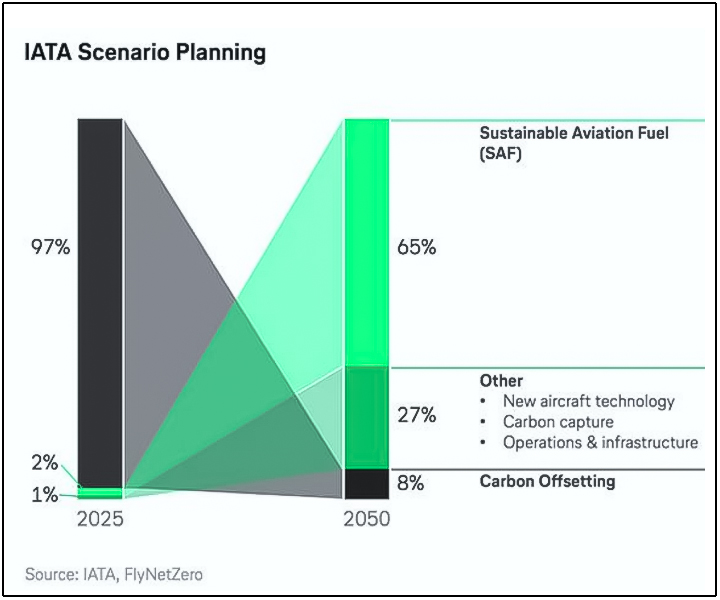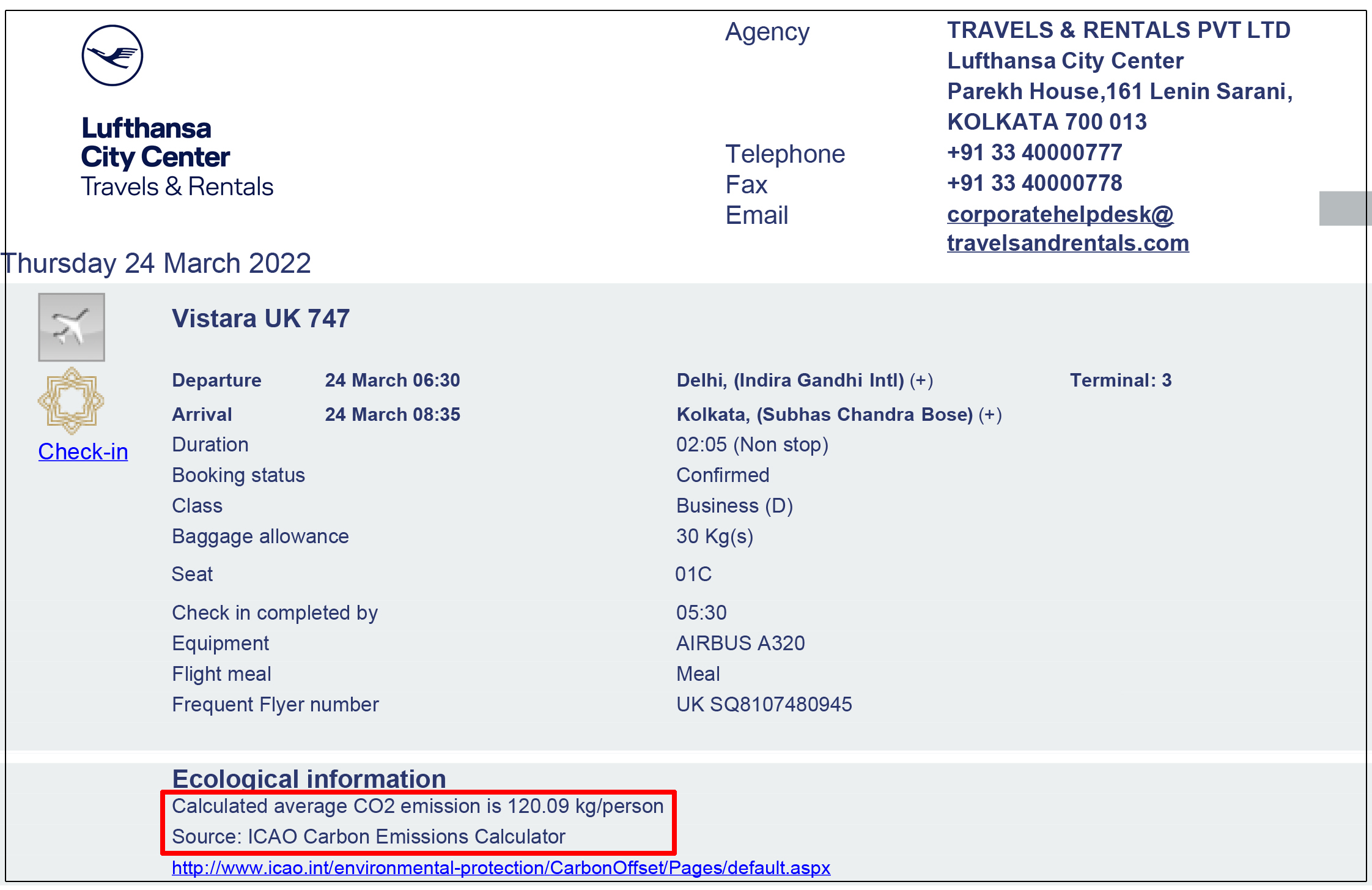
A growing global concern to the entire world, Carbon-di oxide emissions and sustainable travel have been significant issues that travel industry is truly concerned of now. Contributions of aviation emissions against total emissions is floating between the range of 0-5% which accumulates to almost 1.04 billion tons of CO2 as reported by Amadeus in 2018. The popular GDS brand is working towards the objective of reaching net zero emissions which is also expressed by IATA as a part of sustainability awareness and aimed to achieve that by 2050.

The image on the left clearly describes the current scenario of aviation and the future projection which needs an integrated effort across the travel industry to achieve within the stipulated period. With carbon offsetting reduced to 8% from an alarming 97% will be quite an achievement by 2050. Special thrusts needed to put on sustainable aviation fuel (SAF), new aircraft technology, carbon capture and operations & infrastructure to make the planning effective.
Lufthansa City Center Travels & Rentals is making diligent efforts on sustainability issues and providing information in their issued tickets on calculated average CO2 emissions in kg per person. That gives a chance to the passengers to know about the emissions on their travel and options to minimize them.

The image on the right is a ticket sample of Lufthansa City Center Travels & Rentals showing the total quantity of CO2 emissions. Same pledge on sustainability is taken by Google last year when they started showing searches in the Google Flights section and Hotel section both sorted by carbon emissions.
Lufthansa and SWISS announced that they have concluded a strategic collaboration with the Synhelion company to bring its solar aviation fuel to market. This will make SWISS the first airline in the world to use ‘sun-to-liquid’ fuel. The process uses concentrated sunlight to produce carbon-neutral kerosene. With this collaboration, SWISS and Synhelion are playing a pioneering role in the production and the adoption of sustainable aviation fuels. Similarly, Denmark has reported to make their domestic flights fossil fuel free by the year 2030.
The scenario is slowly making its entrance into corporate travel as well, as many enterprises are considering a “carbon budget” in their future travel. This will imply more transparency on flight bookings with respect to flight emissions, type of plane, SAF (Sustainable Aviation Fuel), alternate routes and many more. Slowly and gradually the whole world is coming together and appreciating the significance of green travel. The travel industry has already taken a step forward and it is up to all of us now to carry forward the noble effort and make our earth a better place to live in.
